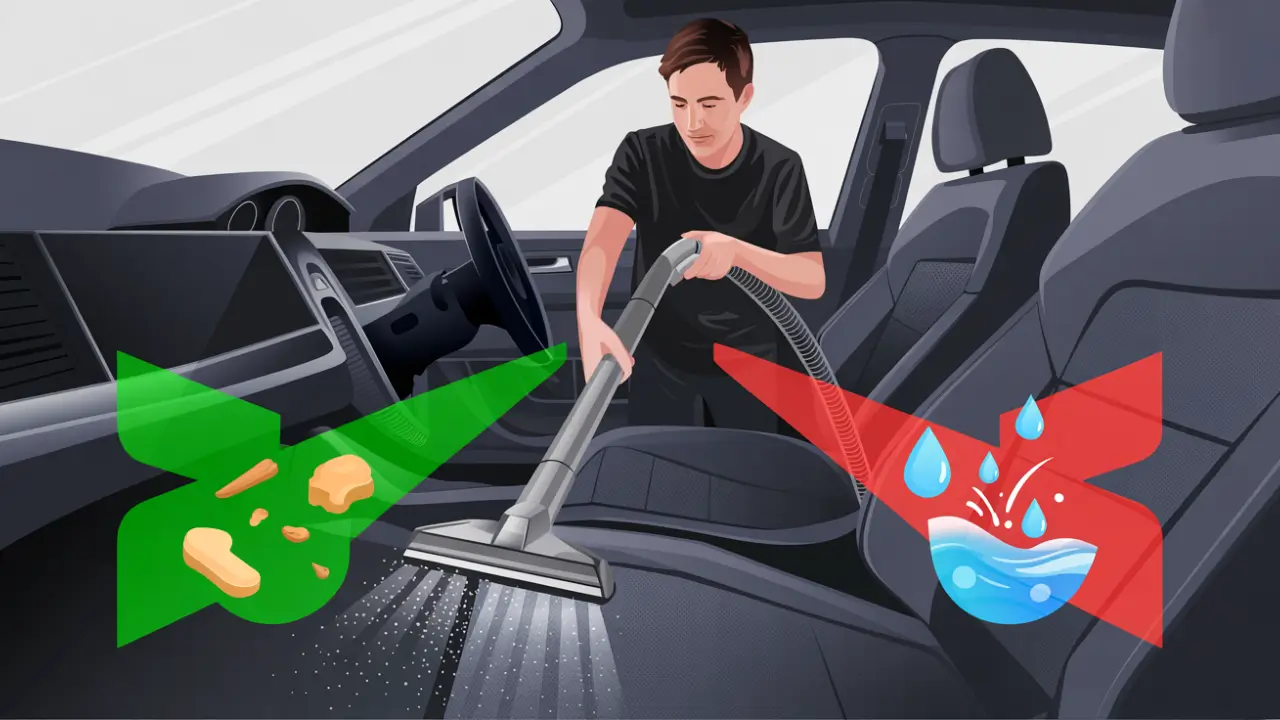Do car wash vacuums vacuum water? Learn how they work, what they can handle, and tips to safely clean your car’s interior.
Introduction
Vacuuming and washing your automobile thoroughly guarantees that it is kept hygienically and aesthetically clean. This is crucial if you frequently transport kids and pets or spend a lot of time in your automobile. Standard car washes can give your automobile a brand-new outside, but they sometimes neglect to clean the inside of the car. As dirt, dust, and debris build up inside your automobile, they can have an impact on your comfort and health in addition to the vehicle’s appearance. In this article, we will take a closer look at car wash vacuums and their working.
Car Wash Vacuums
Car wash vacuums are distinctive vacuums adapted to car wash facilities due to their ability to create the counterparts of the necessary environment. It is normally fixed in the car washing bay and comes with a network of hoses and nozzles that extend to different sections of the car.
How do those car wash vacuums operate?
Automotive vacuums used in car wash facilities utilize air pressure and water to suck in dirt, debris and water in the exterior of the car. The vacuum system typically employs an electric motor or a pneumatic system to generate suction via hoses and nozzles.
Do car wash vacuums vacuum water?
Car wash vacuums can vacuum water, but they cannot do it as effectively as other vacuums even as they are designed to wipe the exterior surface of the car. They do not have capability of sucking large volumes of water. The vacuum system can generally remove a small amount of water left in a clean room after washing or water infiltrating narrow cracks, etc.
Limitations of Car Wash Vacuums:
Here are various limitations of car washes vacuums:
Suction Power:
Car wash vacuums are comparatively less powerful in terms of their suction as compared to industrial vacuums. This makes them unfit for cases where they have to handle massive volumes of water or bulky loads of material. Thus, they may not be useful for highly intensive cleaning operations such as deep cleaning.
Water Pressure:
High water pressure can put pressure on the vacuum system and may hamper its action. Car wash vacuums are made to work at a certain water pressure, and any pressure above it may ruin the system. This limitation means that the water pressure must be regulated so that it is, at the right level.
Clogging:
Car wash vacuums can get choked up which decreases their suction efficiency. Problems arise when there are clogs in the hoses, nozzles or vacuum systems. Regular maintenance is required to avoid blockage and to get the best results.
Water Capacity:
Different car wash vacuums have varying water tank capabilities making them weak in holding large volumes of water. They are meant to drain little volumes of water such as the remaining water after washing. This means that the capacity of the water system could be reduced if water is exceeded.
Debris Size:
Car wash vacuums have a specific limit as to what size of materials it is capable of sucking up. This type of waste has the tendency to block the system or lower the suction capability of the equipment. Fine debris particles such as dirt and dust are easier for the vacuum system to manage.
System Complexity:
Car wash vacuums can be elaborate mechanisms, which implies that they should routinely be serviced and repaired. This may make them more likely to have problems such as blockage or a drop in suction power. Thus, proper maintenance is required to achieve the maximum efficiency.
Conclusion
Although car wash vacuums are not designed for removing large amounts of water. They are intended to suck away dirt, debris and a small amount of water on the car surface. They can vacuum water, they have but they possess some limitations and need to be used properly. If you know how car wash vacuums work and their disadvantages, you can use them efficiently for better performance of your car wash business.
